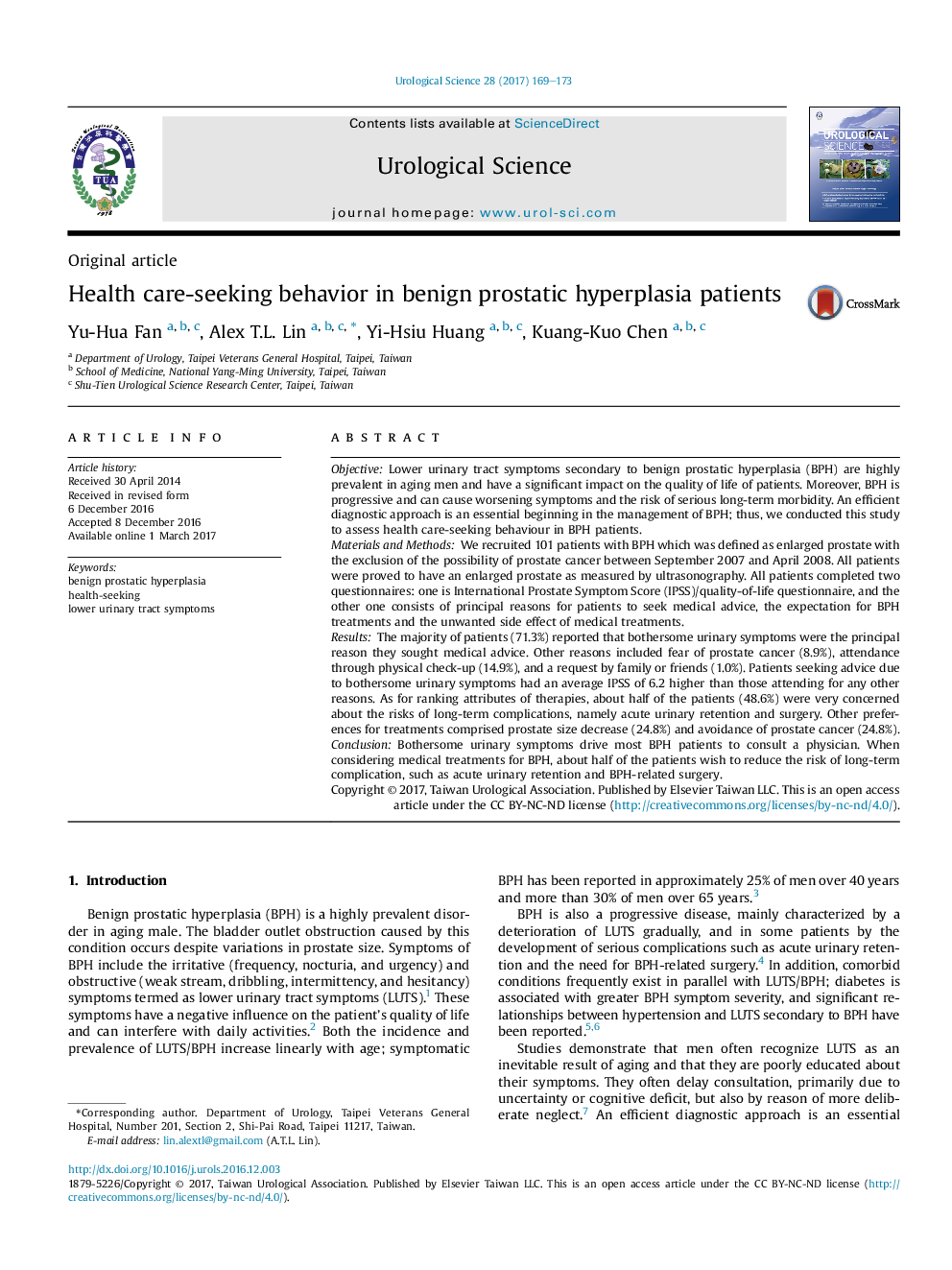| کد مقاله | کد نشریه | سال انتشار | مقاله انگلیسی | نسخه تمام متن |
|---|---|---|---|---|
| 5730655 | 1611153 | 2017 | 5 صفحه PDF | دانلود رایگان |
ObjectiveLower urinary tract symptoms secondary to benign prostatic hyperplasia (BPH) are highly prevalent in aging men and have a significant impact on the quality of life of patients. Moreover, BPH is progressive and can cause worsening symptoms and the risk of serious long-term morbidity. An efficient diagnostic approach is an essential beginning in the management of BPH; thus, we conducted this study to assess health care-seeking behaviour in BPH patients.Materials and MethodsWe recruited 101 patients with BPH which was defined as enlarged prostate with the exclusion of the possibility of prostate cancer between September 2007 and April 2008. All patients were proved to have an enlarged prostate as measured by ultrasonography. All patients completed two questionnaires: one is International Prostate Symptom Score (IPSS)/quality-of-life questionnaire, and the other one consists of principal reasons for patients to seek medical advice, the expectation for BPH treatments and the unwanted side effect of medical treatments.ResultsThe majority of patients (71.3%) reported that bothersome urinary symptoms were the principal reason they sought medical advice. Other reasons included fear of prostate cancer (8.9%), attendance through physical check-up (14.9%), and a request by family or friends (1.0%). Patients seeking advice due to bothersome urinary symptoms had an average IPSS of 6.2 higher than those attending for any other reasons. As for ranking attributes of therapies, about half of the patients (48.6%) were very concerned about the risks of long-term complications, namely acute urinary retention and surgery. Other preferences for treatments comprised prostate size decrease (24.8%) and avoidance of prostate cancer (24.8%).ConclusionBothersome urinary symptoms drive most BPH patients to consult a physician. When considering medical treatments for BPH, about half of the patients wish to reduce the risk of long-term complication, such as acute urinary retention and BPH-related surgery.
Journal: Urological Science - Volume 28, Issue 3, September 2017, Pages 169-173
